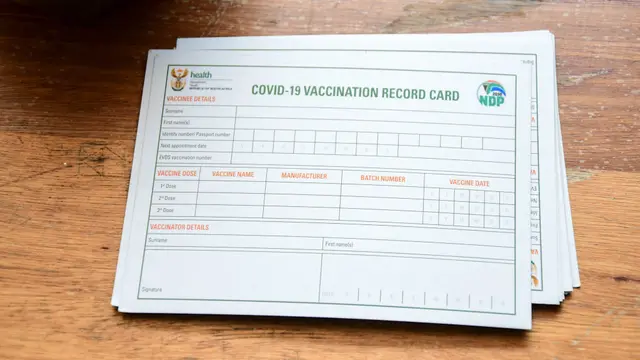Editor's note: John Gong is a professor at the University of International Business and Economics and a research fellow at the Academy of China Open Economy Studies at UIBE. The article reflects the author's views and not necessarily those of CGTN.
It has been more than a year and half since COVID-19 broke out on a global scale, the time span of which is certainly longer than that of the Spanish Flu from 1918 to 1920. The vicious virus still shows no signs of abating with its more powerful and contagious variant versions still running amok. Yet, among the world of nations, there are clear winners and losers. It is about time to call them out and explore a bit what is behind this unfortunate dichotomy.
A study by CGTN think tank answers the above question. It's been a great pleasure to get a first glimpse of this study, inspiring me to write an op-ed piece and hopefully contribute to amplifying its important policy implications to the international public.
The winners are New Zealand, Australia and Vietnam in terms of the accumulated infected population by July 14, 2021. The losers, as expected, are the United States, India and Brazil, the only three countries that have an accumulated infected population larger than 15 million people so far. The U.S. tops the list with 34 million.
In terms of infection cases this year, the winners are New Zealand and China, while the losers are again India and Brazil. India was hit particularly hard in the first half of 2021 with its deadly Delta variant on a rampage.
Now let's look at the death toll, which sees the largest number in the U.S., Brazil and India, but the smallest number in New Zealand, Singapore and Vietnam.
Collecting swab samples in Tianshan District in Urumqi, northwest China's Xinjiang Uygur Autonomous Region, July 20, 2020. /Xinhua
What are the reasons for the national report cards to be so different among these winners and losers, and what can we learn from them? First, it is clear that the divergence cannot be just explained by values, ideology or political systems. My own reading of the study suggests three summary insights that explain why some countries are faring much better than others.
The first reason indeed has to do with geography. Countries like New Zealand and Australia appear to benefit from their unique locations in that they are relatively isolated from the rest of the world. So, it is probably easier to take measures to hold the virus at bay at national borders.
Second, the study mentions the extraordinarily important role of the media. Countries where the mainstream media is able to convey right and correct information, to fend off misinformation and disinformation especially emanating from social media, like in New Zealand and Singapore are more likely to come out as winners in this battle.
On the other hand, the U.S. is a perfect opposite example of a horrible media influence. In 2020, the misinformation and disinformation directly came from the commander in chief, former President Donald Trump. I can't even remember how many lies he spewed out from the White House podium, and I got sick and tired of listing them again and again.
This year, as President Joe Biden said, it is the misinformation and disinformation about vaccines on Facebook that are killing people. Most of the 20,000 daily new infections in the last few days came from the four states where vaccination rates are particularly low. Unfortunately, public doubt about the vaccines, which are in fact the three best vaccines so far against COVID-19, has turned into hostility and resistance among some Republican constituents in these states.
Finally, it goes without saying that the last factor is the important and strong role played by the government, where Vietnam and China are good examples. This includes quick and resolute responses whenever a mini-outbreak happens and decisiveness regarding masking, social distancing, contact tracing, PCR testing, and yes, lockdown measures too, if necessary. These things were once described as draconian by Western media, but heck, who cares if they are indeed saving lives.
(CGTN)
 简体中文
简体中文

